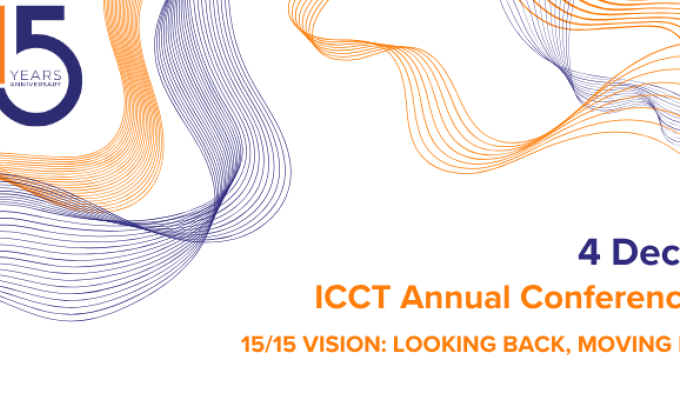The presidential elections that were held in Mali last month were considered a historic event by many locals. From a (counter-) terrorism perspective, they were exceptional not so much for what happened but rather for what did not. According to all reports, the first election round on 28 July and the second on 11 August passed without significant violent disturbances: no suicide attacks, no hostage takings, no incidents with multiple casualties. Rather than focussing on the results and the hitches in the electoral process, real newsworthiness lies in what could have taken place but did not. Al Qaeda in the Islamic Mahgreb (AQIM) – the group that posed an existential threat to the country in January by launching a large-scale attack on the south – remained silent this summer. One day before the first round of elections, the other main terrorist group active in the region, the Movement for Unity and Jihad in West Africa (MUJAO), warned people not to vote and threatened to attack polling stations. It failed to do so and thus not only missed the chance to create havoc, but also dented its own credibility.
Elections are the perfect events for terrorist organisations to disrupt. There are civilian targets galore, there is ample opportunity to spread fear and terror, and above all, terrorists can advance their political aim: impede and discredit the government. By intimidating voters and thus potentially reducing voter turnout, politicians stand to lose legitimacy when and if elected. It is precisely this political aspect of terrorism that distinguishes terrorists from ordinary criminals. What is more, besides detracting from political legitimacy, state credibility is also damaged. The national security forces that are expected to protect the civilian population against attacks lose credibility when incidents do take place. So it is all the more surprising that the terrorist groups in Mali did not use the opportunity to impede the national and international reconstruction efforts by hindering the elections.
The Taliban in Afghanistan showcased what happens when an insurgency does decide to frustrate the democratic process. After the US-led intervention in 2001, the Taliban insurgency in Afghanistan needed several years to take hold. In part, they were granted time to regroup, but it was predominantly those that held power – the Afghan government and the power brokers – that drove swathes of have-nots into the arms of the Taliban. The first presidential elections in October 2004, secured by the Afghan National Security Forces and the NATO-led International Security Assistance Force (ISAF), were violent by any standards. Several members of the electoral management body were killed. Five years later, in August 2009, the first round of the presidential elections was the most violent day in the country since ISAF started registering incidents. Already in the middle of a violent “fighting season”, this election day was several times more violent than the average summer day. As a result, voter turnout in the Southern Pasthun provinces was minimal, a fact that even massive fraud in favour of the incumbent Pashtun candidate President Karzai could not compensate. According to non-governmental organisations, the subsequent parliamentary elections in September 2010 again broke the record for violent attacks on a single day. Although arguably the Afghan government's legitimacy is equally tainted by its enormous level of corruption, violent elections have certainly not contributed to the government’s legitimacy and credibility.
Like the Taliban, the different terrorist groups in northern Mali are a disparate and divided lot. For the Taliban, a system of decentralised leadership has proved effective, in spite of relentless ISAF targeting. The Taliban strategic leadership, out of ISAF's reach in Pakistan, sets out broad directives for local commanders. They then decide how to translate these into action, and the system has been extremely effective during elections. In Mali, terrorists organisations are even less homogeneous than the Taliban. A collection of interconnected networks, they are plagued by internal strife and leadership differences. Those that survived the French onslaught earlier this year are now either recuperating in the desert in southern Libya, or are starting a budding insurgency in Mali. The use of improvised explosive devises is frequent and suicide attacks – an unknown phenomenon in Mali until February 2013 – are now a regular occurrence. So why did nothing significant happen on 28 July and 11 August? Most probably, it is because the different groups still have to regroup and reorganise. The short time lapse between their conventional defeat and the elections, the loss of their safe haven in the Adrar des Ifoghas and the death of many fighters must have made the groups incapable of orchestrating a coordinated effort.
The absence of violent attacks during the elections in Mali is an indication of the current weakness of al Qaeda, MUJAO and Ansar Dine. This, however, does not mean they are defeated. The counter-terrorism instrument of offensive military action probably has met its limits. Any attempt to eradicate the remaining elements of radical Islamists by military means will probably pour petrol on the embers. What is now needed is a process of reconciliation between the different groups in northern Mali, from Tuareg to Arabs and Songhai. This will be a huge challenge for Ibrahim Boubacar Keïta, the elected President, who will also have to break out of a vicious circle of corruption and nepotism. But the good news is that these peaceful elections will at least offer him a window of opportunity. French insistence to hold elections sooner rather than later, despite strong voices against such a move, has thus far been proved right. Support by the international community beyond the military offensive and for the newly-elected government is therefore crucial. Above all, these elections should remind analysts of Sherlock Holmes' dog that did not bark. One should not only focus on events that did happen, but also on those that did not, despite the fact that they could have happened. Considering MUJAO's threat to disrupt the elections, the dog did indeed bark, but it certainly failed to bite.








